Local elections: Wales goes to the polls in fraught times
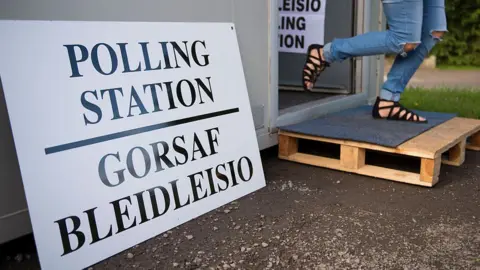 Getty Images
Getty ImagesA year after the Senedd election, Wales returns to the polls on 5 May to vote for those standing to be councillors across all of the country's 22 local authorities.
There are big challenges, like the terrible scenes in Ukraine, that will shape political debate during the election campaign.
Wales will soon be welcoming refugees fleeing the war and local councils will have a big part to play in helping to provide support and services for the new arrivals.
Rising cost of living pressures will also be an increasingly important political issue.
We are already noticing increased energy and food bills and while the war in Ukraine will have made these things worse, they would have been a big issue anyway because of other pressures in the world economy.
While local councils have little direct control over these pressures, they are on the front line of delivering support and help to people struggling to make ends meet.
And this is the first big electoral test for the political parties since the 2021 Senedd election.
What's at stake for them?
Labour seek to regain ground
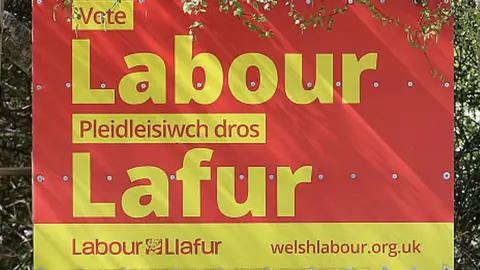 Getty Images
Getty ImagesLabour matched their best ever performance in last year's Senedd election and polling suggests they're in a strong position heading into this campaign.
They have the largest number of councillors in Wales and have majority control of seven councils, all in the south - Swansea, Neath Port Talbot, Rhondda Cynon Taf, Caerphilly, Cardiff, Newport and Torfaen - but they suffered big losses at the last council elections in 2017.
They lost more than a hundred councillors and lost majority control of three councils: Blaenau Gwent, Bridgend and Merthyr Tydfil.
So they're heading into this set of elections hoping to regain some of that lost ground.
Tougher Tory task
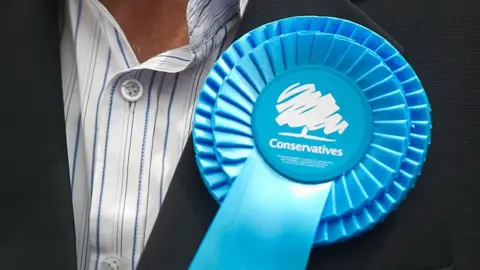 Getty Images
Getty ImagesFor the Conservatives, who won their highest ever number of Senedd seats last year, this year's campaign is a tougher proposition.
Although these are local government elections, national issues do impact on voters' decision making and Boris Johnson had a very difficult start to the year.
It remains to be seen if there will be any backlash over those reports of Covid rule breaking parties at Downing Street or whether the war in Ukraine means voters have moved on.
There's also a lot riding on the chancellor's imminent spring statement, because of the pressure on household finances.
If planned tax rises go ahead in April, will Welsh Conservatives feel the blowback in May?
The Welsh Conservatives did well in the 2017 local council elections - they were the biggest gainers.
But that success puts the pressure on this time around because it means they've got more to defend.
Keep an eye on Monmouthshire, where they won majority control last time and will want to hold on.
It's also worth watching the Vale of Glamorgan and Denbighshire, where they became the largest group in 2017.
Plaid Senedd deal a factor?
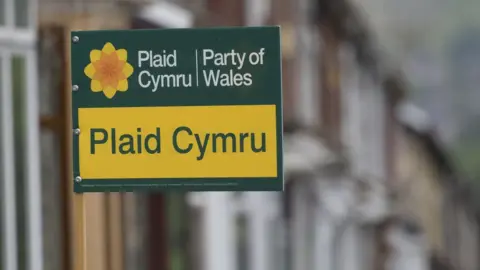 Getty Images
Getty ImagesPlaid Cymru had a disappointing performance in the Senedd election.
They are the third largest party in the Welsh Parliament and have entered into a co-operation agreement with the Welsh Labour government in Cardiff Bay, which gives them influence on a variety of policy areas without actually having any ministers in government.
Will that give them momentum for these elections, or has their voice been diluted by the hybrid nature of the one foot in, one foot out deal with Welsh government?
Plaid made modest gains overall in 2017, increasing their majority in Gwynedd and becoming the largest party in Anglesey.
In Cardiff the party is running a pact with the Greens who have yet to make much impact on local government in Wales.
Lib Dems look for green shoots
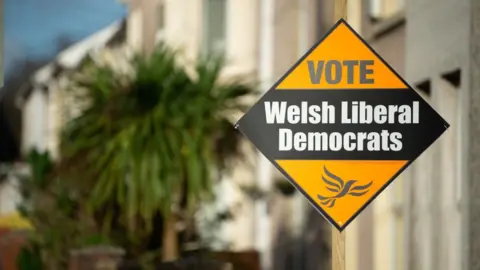 Getty Images
Getty ImagesThe Liberal Democrats have been in the political doldrums for a while, though they clung on to a seat in the Senedd last year.
Grassroots campaigning used to be a strength for the party, which has struggled to find a distinctive voice in Welsh politics in recent years.
Supporters will be looking for any signs of green shoots this time around.
Don't forget independents
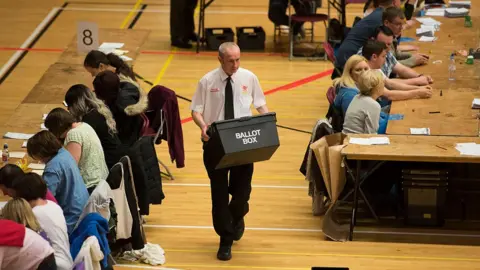 Getty Images
Getty ImagesIn most elections not being attached to a big political party stacks the odds of success against you.
In local council elections a hot local issue or being well known in your area counts for a lot, and low turnout means fine margins can decide the victor.
All of which means independent candidates can be very successful.
In fact, independents made up the second largest group of successful candidates in 2017 and in some cases they have teamed up to run councils.
